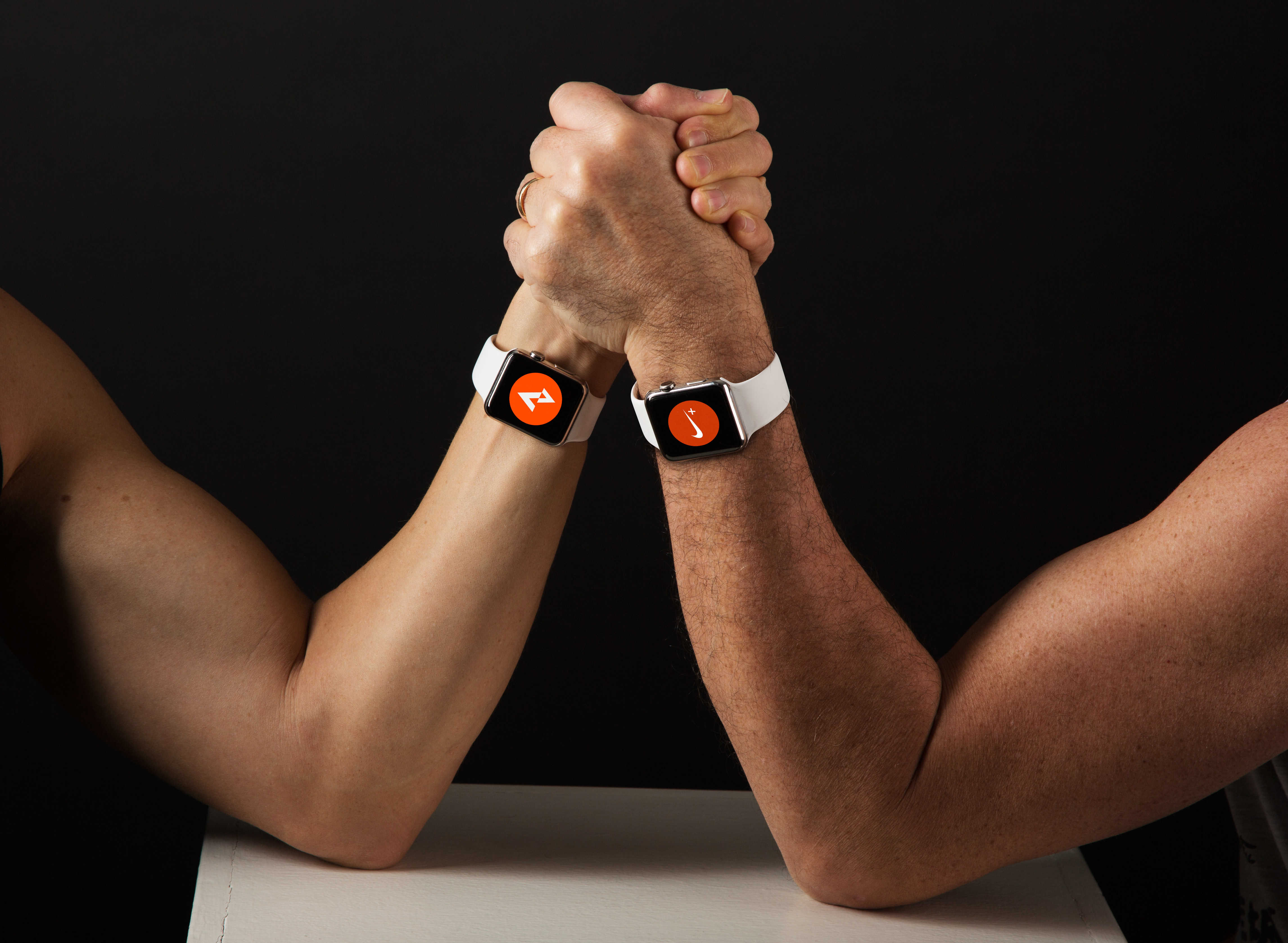Sports apparel makers clearly believe that fitness apps are an important part of their futures. Under Armour and Adidas have invested heavily in fitness apps, and Runkeeper’s recent acquisition by ASICS is just the latest in a long series of app acquisitions by apparel makers.
These companies have big brands and deep pockets. Can an indie developer realistically compete with all that? Gareth Nettleton, VP of marketing for indie fitness app Strava, tells me that like any serious athlete, his hard-charging company thrives on competition.
Survival of the fittest
The App Store’s Health and Fitness section is now dominated by the big apparel brands.
It all started with the launch of Nike+ GPS in 2010. Adidas joined the fray later that same year with miCoach. Under Armour bought its way in by acquiring MapMyFitness, MyFitnessPal and Endomondo. Adidas got its checkbook out for Runtastic. And now ASICS has snagged Runkeeper.
In the aftermath of this acquisition frenzy, Strava is now the biggest fitness app to remain independent. The company faces a daunting challenge to hold its own against the mega-brands that now have a huge amount invested in winning the battle for survival of the fittest.
Motivation and community are key
Running apps are becoming increasingly commoditized, with most apps offering the same core features, like GPS route mapping. And since it is fairly easy these days to transfer your runs from one app to another, developers need to start innovating to maintain the interest and loyalty of their users.
Motivation and social features are what most fitness developers are focusing on to differentiate their apps: Finding new ways to encourage users to run regularly and connect with like-minded runners.
Nike is behind in community, but the shoemaker is arguably the leader when it comes to motivation. Strava may have some impressive community features, but overall there is not much that differentiates any of these apps.
That may be all about to change. The true value of social and community features is much greater than just product differentiation. They help build richer relationships with consumers, and this is why the apparel brands are so interested.
Buying in to a community
I chatted with Runkeeper’s CEO, Jason Jacobs, a couple of weeks before he announced his company’s acquisition. He acknowledged that no one is doing community and motivation well yet, arguing that it takes a software specialist to get it right: “Most [of the app developers] with the data aren’t software companies at the core,” he said. “There are only two of those — us [Runkeeper] and Strava — and all the other brands are trying to buy their way in.” Whether Runkeeper can retain its core software competency post-acquisition remains to be seen.
Strava’s Nettleton thinks there’s plenty of room for competition.
“If you’re in the business of selling running kit, then the appeal of a social network full of athletes sharing their workouts and run/cycle adventures is obvious,” Nettleton said. “However, that doesn’t necessarily mean that all fitness communities will simply get bought up. There’s lots of other potential outcomes as well.”
Strava recently partnered with New Balance to power the shoemaker’s running clubs. Nettleton explains that “our technology will allow New Balance Run Club runners to connect with each other, track performance, share their favorite routes and celebrate accomplishments.”
It is a step short of merger or acquisition, but it enables both companies to focus on what they do best, while also collaborating at arm’s length.
Racing to build relationships
By building communities of runners, the big brands believe they can mine our data to identify patterns in our spending, and use this to deliver targeted promotional messages. The oft-cited example is that by logging the mileage of our running, brands can pester us at exactly the right moment, when our shoes are due for replacement.
These data-mining opportunities are why Runkeeper’s Jacobs believes there are “magical possibilities in terms of building a new kind of fitness brand that is a tech company at the core.”
Great experiences build great relationships
I have some doubts about all this. Sure, being nosy and prying into data about our running habits may offer some intriguing factoids. But if the end result is just more in-app promotions and marketing e-mails, it risks irritating users rather than building relationships with them.
Nike’s running app has certainly made me like that brand more. I originally used the app because it was well-designed and free. All the good experiences I had with it over the years created a “halo effect,” making me predisposed to try out other swoosh-branded products. But if Nike gets too greedy and starts sending me spookily targeted promotions within the app, the company risks tarnishing that halo.
Sticking to their knitting
Personally, I hope Strava holds its own against the big brands and remains independent. The Strava app and website have an intelligent, clean design that focuses on the features serious runners and cyclists are really interested in.
I’ve been using Strava for a while now, and I have been particularly impressed by innovative features like “segments,” which enable you to compete with other runners or cyclists on specific parts of your route.
If an apparel brand were to acquire Strava, I think it is inevitable that the beautifully uncluttered user interface would start to fill up with ads and promotions, and that could ruin a brilliant app.
There is something to be said for sticking to your knitting (or flyknitting in Nike’s case). I’d like to see the apparel brands focus on making great sportswear and leave the remaining indie fitness apps, like Strava, to do what they know best.


